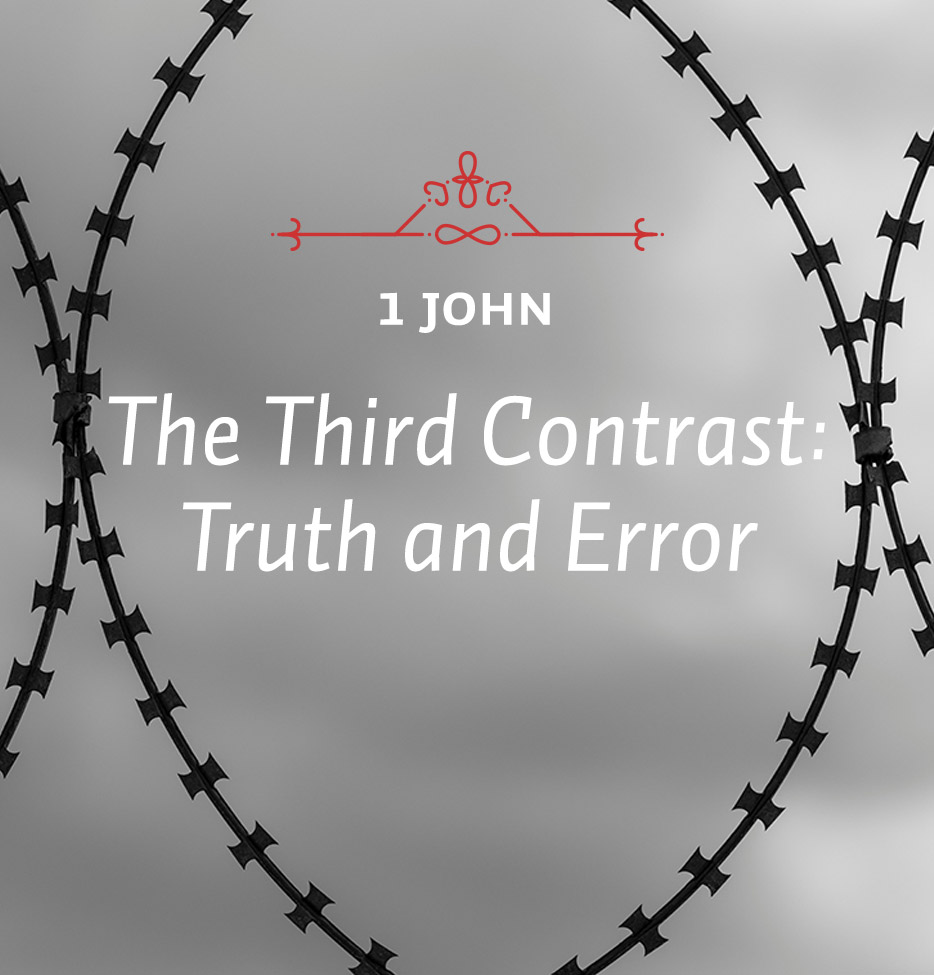There are three possible ways in which the confession of verse 2 may be taken, as Brooke indicates.1
1) “Jesus Christ” may be the object, and the phrase “has come in the flesh” may be the predicate. In this interpretation the confession would be that “Jesus Christ is come in the flesh”; that is, that He was a real man. This statement would be directed against some form of Docetism, the view that Christ was a spirit who only seemed to be a true man.
2) “Jesus” may be the subject, and the rest of the phrase may be the predicate. This would give the meaning, “By this you know the Spirit of God: every spirit which confesses that Jesus is Christ come in the flesh is of God.” It would involve the identity of the historical Jesus as the incarnate Messiah.
3) The entire phrase may be taken as one connected and comprehensive accusative, the view favored by Brooke himself. This would be the simple confession of “Jesus Christ incarnate.”
Brooke feels that the third interpretation is “the simplest construction” and should be preferred unless it is “too awkward.” But there are two reasons why the second interpretation is better than this. First, the single subject “Jesus” accords with the same single subject in the negative statement in verse 3. It also accords well with a similar confession of Jesus as the Christ in John 9:22. Second, the confession of Jesus as Christ come in the flesh most clearly refutes what is known of the Gnostics’ views. They wished to deny that the historical Jesus was the incarnate Christ, probably suggesting instead that the divine Christ merely descended upon the historical Jesus at His baptism and left Him before the crucifixion. John, by contrast, regards the denials of Jesus as the incarnate Christ as the chief of all errors and seeks to combat it.
Here Dodd makes an excellent observation, contrasting this passage with the test of a true prophet in Deuteronomy 13. “The fundamental doctrine of Judaism is monotheism; no utterance, however inspired, which contradicts the principle of monotheism can be accepted as true prophecy. The fundamental doctrine of Christianity is the Incarnation; no utterance, however inspired, which denies the reality of the Incarnation, can be accepted by Christians as true prophecy.”2 In Christianity the incarnate Christ is central. Consequently, believers may tolerate no system which denies either His eternal godhead or historical humanity. As Bruce says, “No matter how charming, how plausible, how eloquent the prophets in question may be, the test of their witness to Christ and His truth is the test by which they must be judged.”3
At this point we may feel that the discussion has become somewhat theoretical and even unreal, for we are not often confronted today by those who claim to be prophets. Our difficulty is rather of knowing on the purely human level whether or not a teacher speaks truly. Can we test those who speak on this level? Can truth be distinguished from error here? The objection is valid, of course, and the questions are good ones. Consequently, we are not surprised to find John turning to deal with this matter in the remaining verses.
1A. E. Brooke, A Critical and Exegetical Commentary on the Johannine Epistles (London: T. and T. Clark, 1912), 108-109.
2C. H. Dodd, The Johannine Epistles (London: Hodder and Stoughton, 1946), 102-103.
3F.F. Bruce, The Epistles of John (Old Tappan, NJ: Revell, 1970), 105.






